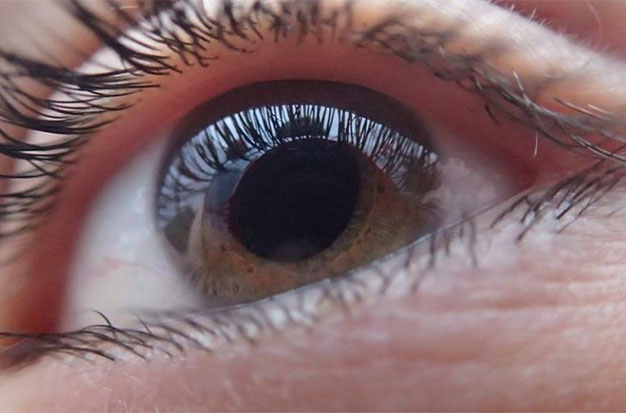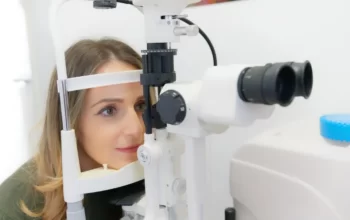
If carried out by a certified and competent eye doctor and cataract surgeon, micro-incisional cataract surgery often takes less than 10 minutes.
Here is everything you need to know, including how long you will need to be off work, driving after surgery, and how to hasten your recovery.
How Long Does Cataract Surgery Take?
You will undergo cataract surgery, commonly known as phacoemulsification, as a day patient because it is a short and simple process. The surgical team will need to get your eyes ready for surgery when you get to the hospital. You must do this by placing drops in your eyes to dilate and enlarge your pupils.
Additionally, you will be given a surgical gown to wear and asked to sign some consent forms.
Once in the operating room, your cataract surgery will take 15 minutes, and when you are ready to leave the hospital, you will be released. You won’t spend more than four hours in the hospital.
Eye drops to numb the area can be used during cataract surgery, or a local anesthetic can be used. You will have to wear a clear shield over your eye until you go home if your operation involves simply eye drops. You will need to wear an eye pad and a shield for a few more hours until the local anesthetic wears off if your surgeon uses one.
How Long Does Recovery Take?
Your eye will feel normal again 24 hours after surgery. However, your sensitivity to light may persist for a few more days.
It will take four to six weeks for your eye to fully heal.
What Are The Side Effects Of Cataract Surgery?
Your eye may likely feel watery and slightly gritty just after surgery; this is typical. Your eyes may appear red or bloodshot, be light-sensitive, and cause some blurring of your vision.
The drops used to widen your pupils before surgery won’t stop working for 24 hours. During this period, you’ll notice that your pupil appears larger than usual. While you wait for the droplets to stop, your vision will also be hazy.
Can I Drive After Cataract Surgery?
You must be able to read a license plate from 20 meters away in order to operate a vehicle. Additionally, you’ll have to demonstrate that you can read the 6/12 on an eye test chart while keeping both eyes open. Your optician or ophthalmologist can set up this test.
The day after cataract surgery, if you don’t have any other visual issues, you’ll be able to read both. You might be told it’s okay to drive because you’ll only have one eye operated on at a time; just make sure you drive carefully at all times.
For some individuals, getting new glasses is necessary to meet the standards for safe driving. Before getting an eye exam for a new pair of glasses, it is advisable that you wait four to six weeks for your eye to stabilize.
If you use really strong glasses, you might have to wait until your other eye has undergone surgery before having your vision balanced. Prior to getting a new prescription for your glasses, you will need to wait until both eyes have recovered completely.

Five Tips To Minimise Recovery Time
To ensure that your eye recovers properly following the surgery, there are a few things to consider. Here are our top five tips to minimize cataract surgery recovery time.
Do Not Rub, Touch, Or Aggravate The Eye
Refrain from touching, rubbing, or inflaming the eye. You can have grittiness or even a sensation of having a grain of sand in your eye after the procedure. The fact that there have been such few incisions may be the cause of this. Avoid touching the eye because it will soon cease hurting, and avoid getting soap in or close to the eye. To shield the eye from the sun and any outside materials getting in, it is advised to wear sunglasses and a hat.
Attend Any Post-Surgery Checks
Usually, you do not need to attend the clinic the day after your cataract surgery. However, if we feel that you need to attend a post-operative review, for various reasons, we will ensure that we see you a day or two after your surgery to ensure that the recovery of your eye is not delayed. We will generally check on your eye at the clinic about 1 week after your surgery.
Follow Instructions From Your Eye Surgeon
The eye needs to have some downtime and not be stressed. This includes giving up swimming, hard lifting, and rigorous activity for two weeks, one month, and one week, respectively. Additionally, try to avoid bending over too frequently to lessen any eye strain. Whenever possible, refrain from sneezing or throwing up shortly after cataract surgery.
Avoid Strenuous Activities And Tasks
The eye needs to be relaxed and unburdened. This entails refraining from swimming for two weeks, heavy lifting for two weeks, and rigorous exercise for one month. To lessen any strain on the eye, try to avoid bending over too frequently. Avoid sneezing or throwing up shortly after cataract surgery if at all feasible.
Relax And Stay Healthy
Cataract surgery can be daunting and stressful. Following the surgery, you should not feel significant pain. However, your vision might be blurred temporarily, and things might feel a little different. It is essential during this time that you try to relax so that your eye recovers safely. If you have any concerns, please contact our friendly surgeons and staff.
Things To Avoid After Cataract Surgery
Keep the following in mind after your first day following cataract surgery:
- As directed, take your eye drops. If you have any questions, call us.
- Refrain from touching, rubbing, or pressing the eye.
- Keep your face makeup free, especially around your eyes.
- Stay away from windy areas where debris could enter your eye.
- No swimming, no heavy lifting, and no hard exercise for two weeks, respectively.
- Put on sunglasses and a hat with a wide brim to shield your eyes from the sun.
While the lens we implant in your eye is designed to provide you good distance vision without glasses, a little change may necessitate the use of new eyeglasses in order to get the finest distance vision possible. After surgery, wait up to 6 weeks before buying new glasses.
This is dependent on the health of the other eye when driving. The best piece of driving advice is to only get behind the wheel when you feel capable of doing it in a safe and responsible manner. It can take a week or more.
Conclusion
You should make every effort to ensure a smooth recovery as your eye goes through the cataract surgery recovery phase. There are many factors to take into account, but if you follow your post-operative instructions, refrain from excessive exercise, and shield your eye from objects and physical touch, you will be well on your way to a healthy eye and significantly better vision.
Please leave a comment if you still have questions concerning cataract surgery.



